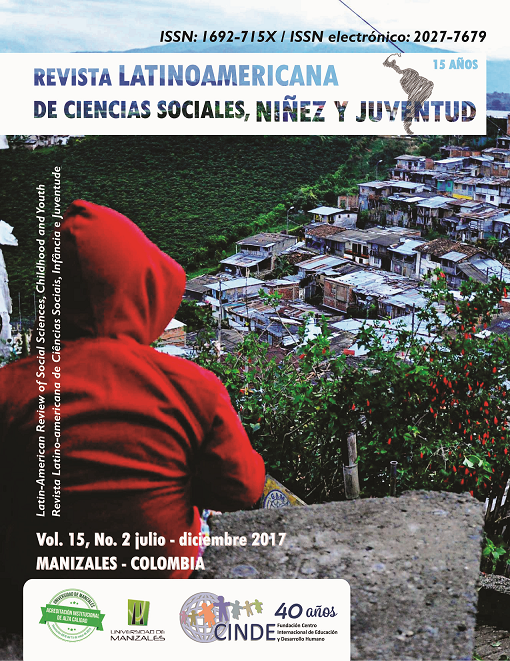La educación ambiental y su importancia en la relación sustentable: Hombre-Naturaleza-Territorio
Main Article Content
Abstract
(analytical): Objective. Promote the importance of environmental education in strengthening the Humanity-Nature-Territory sustainable relationship in 8 children who participate in bird watching at the María Berchmans Primary School between August and November 2015. Methodology. Between August and November 2015, a case study was carried out based on experiential and social learning that was divided into two phases. This case study involved 19 activities classified into 7 categories. Results. The development of both “hard” cognitive abilities and “soft” socialemotional skills involving different educational environments encourages active learning that strengthens the sustainable Humanity-Nature-Territory relationship. Conclusion. The generation of awareness regarding environmental conservation through considering the importance of school education in the Humanity-Nature-Territory relationship leads to the appropriation of biodiversity (natural-cultural) and results in meaningful learning.
Key words: active learning, learning environment, education and culture (Unesco Social Sciece Thesaurus).
Downloads
Article Details
You are free to:
- Share — copy and redistribute the material in any medium or format
- Adapt — remix, transform, and build upon the material
- The licensor cannot revoke these freedoms as long as you follow the license terms.
Under the following terms:
-
Attribution — You must give appropriate credit, provide a link to the license, and indicate if changes were made. You may do so in any reasonable manner, but not in any way that suggests the licensor endorses you or your use.
-
NonCommercial — You may not use the material for commercial purposes.
-
ShareAlike — If you remix, transform, or build upon the material, you must distribute your contributions under the same license as the original.
- No additional restrictions — You may not apply legal terms or technological measures that legally restrict others from doing anything the license permits.

